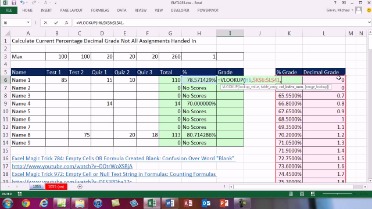
He adds that most prominent accounting firms offer skills training in different competency areas. Contrary to the stereotype of accountants working alone, many accounting professionals work in teams. By participating in collaborative projects, accountants can generate positive results for their organizations and pave the way for valuable advancement opportunities. While some accountants is chart of accounts the same as a general ledger have natural aptitudes in these and other areas, all the skills essential to their professional success can be acquired.
Developing a Data-Driven Mindset
- Projects that involve other employees — like budgets, cash flow projections, or strategic planning — can be complicated and require a high degree of collaboration.
- Knowledge of how to prepare and report on financial statements is critical to becoming an accountant.
- Yet, several skills are important, and often mandatory, across all positions.
- The U.S. Bureau of Labor Statistics reports a 2022 median salary of $78,000 for accountants and auditors.
- As professionals advance in an accounting or finance career, soft skills become increasingly important.
The best financial reports communicate complex data in a way that is understandable to all stakeholders. These reports can then be used to evaluate clients’ financial health and vulnerabilities. Most recently, COVID-19 created a range of challenges for accounting and finance teams to solve. Reallocating funds and cash management, managing payroll changes, reacting to new legal changes to internal reporting practices, and other changes required employees to think critically and creatively to meet organizational needs. What I am seeing, for my own team and firmwide working with hiring companies, is the importance placed on various soft skills for accounting and finance professionals, which can help take the company’s work to the next level.
Top 12 Professional Accountant Skills to Put on Your Resume
For a professional accountant, this knowledge is crucial for ensuring compliance and enabling accurate financial reporting in a global business environment. It is a critical function for professional accountants to manage efficiently, ensuring both legal compliance and employee satisfaction. GAAP compliance ensures financial statements are consistent, transparent, and comparable across the industry, essential for maintaining trust in financial reporting and making informed decisions. For professional accountants, adherence to GAAP underlines their credibility, professionalism, and commitment to upholding the highest standards in financial reporting. Collaboration with teammates and other employees is paramount for accounting professionals.
Be prepared for tax season early
A keen eye for irregularities and errors is an essential skill for accountants. Soft skills also set you apart from other applicants in the accounting job market. If you don’t know your way around an Excel spreadsheet, take some time to practice. You might even take an online course to ensure you’re at the top of your game before applying for accounting jobs or a graduate program. By integrating these strategies into your practice, you can streamline your tax preparation process, enhance accuracy, and provide better service to your clients.

Interpersonal skills can help you foster positive relationships, resolve conflicts, and achieve common goals. GAAP and IFRS share several similarities but differ in key ways, particularly in how components of the balance sheet, cash flow statement, asset revaluation, and inventory valuation methods tips for crafting invoice payment terms to ensure you get paid fast are treated. You need to understand those similarities and differences to determine when each should be used, which will be dictated, in part, by the audience (whether US-based or international). Knowing what information goes into each financial statement, how to evaluate that information, and understanding the story it tells is a crucial skill for anyone interested in entrepreneurship or management. Regardless of your industry or role, your career is guaranteed to be influenced in one way or another by finance and accounting.
Top Accounting Skills for Success
This compensation does not influence our school rankings, resource guides, or other editorially-independent information published on this site.
Our recruiters regularly see communication as a top skill for accounting and finance talent. Nearly every function of an organization interacts with the accounting and finance teams. Therefore, professionals need to have exceptional communication skills, both written and verbal. Important projects need to be communicated in an easy-to-understand way to executives and colleagues (especially if they are unfamiliar with accounting or finance terminology) to ensure proper completion. You flexible budget report need to be able to interpret and evaluate financial data, identify patterns and trends, and solve problems creatively.
You can also access most public companies’ financial statements to practice your skills, which are reported on a quarterly basis. Now that you understand the value of financial accounting skills, you may be wondering the best way to develop them. If you work in management or interact with the financial team on a semi-regular basis, then it’s likely that you already have at least some level of understanding of the basic language of finance. In that case, furthering your understanding of financial terms and metrics can help you become more effective.
Accountants must explain their findings to colleagues and clients, many of whom do not have a strong understanding of complex financial concepts. “Great accountants look at the output and judge whether it is reasonable so as not to waste everyone’s time on an analysis that makes no sense when you take a step back and look at it from a common sense standpoint.” The information accountants handle every day is highly sensitive, and the work often includes tight deadlines. It’s important for an accountant to always be dependable, reliable, and trustworthy.
Most significant projects and deliverables will happen at the same time of year, depending on the organization. Here are a few tips I have found to help develop time management skills and stay organized. You need to know how to apply accounting principles, standards, and regulations to different situations and transactions.





